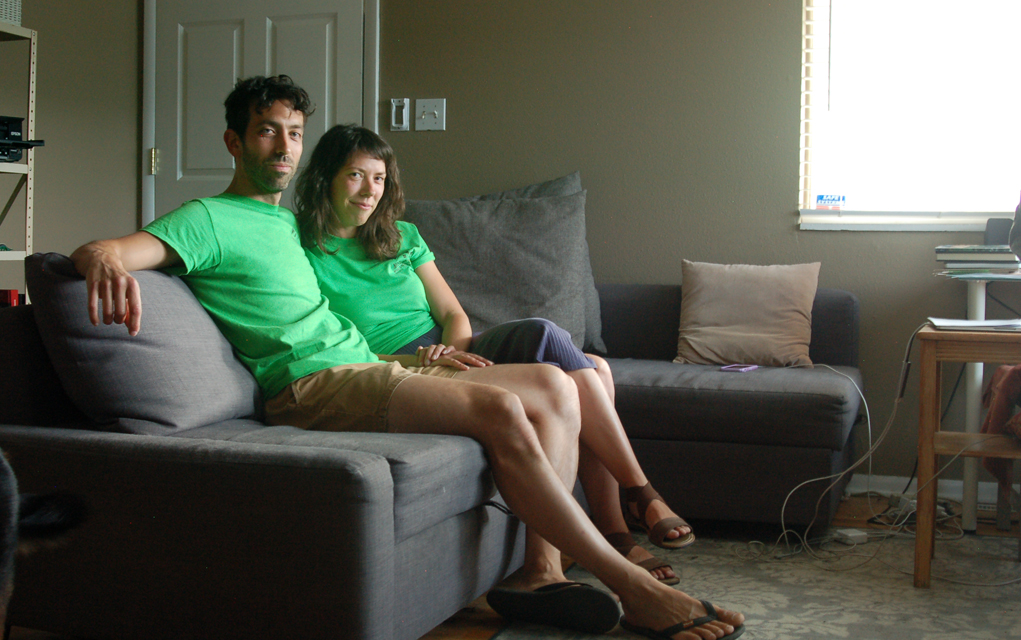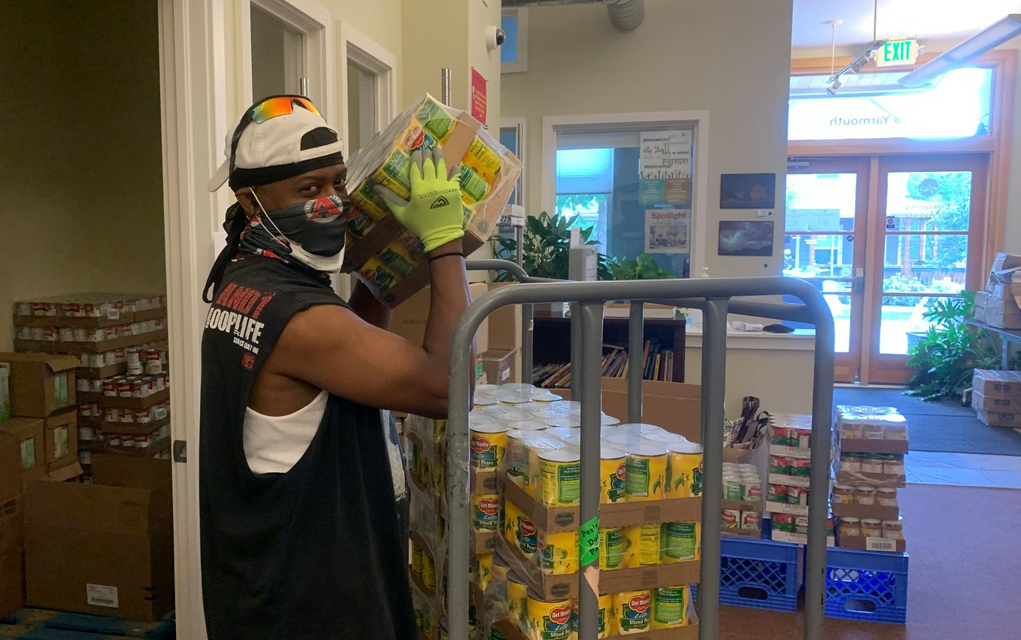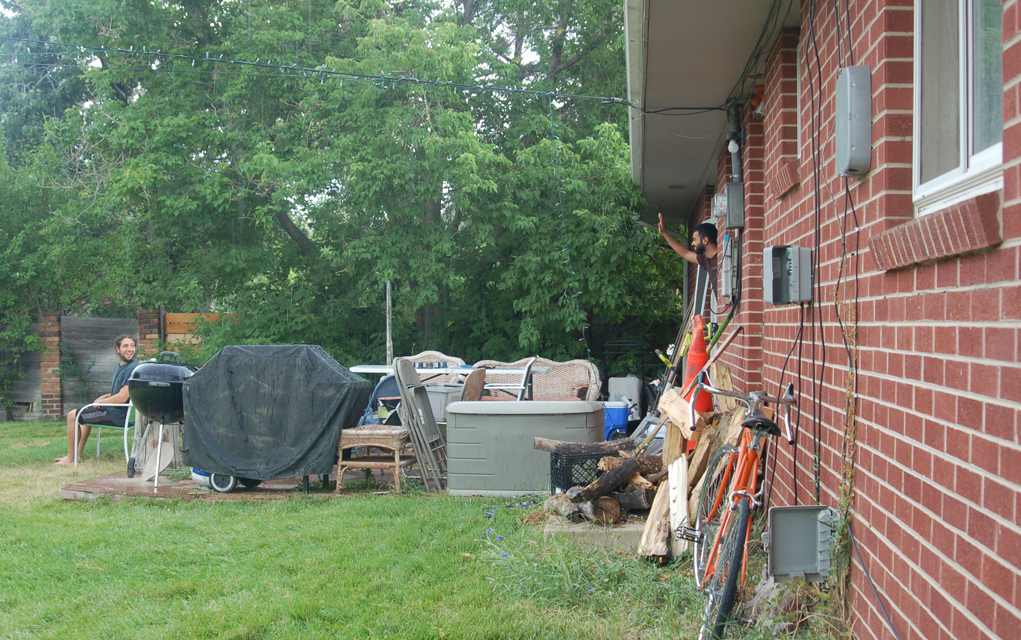
The date of Aug. 11 has been looming in Ruy Arango’s mind for months. It’s an expiration date — the day when the last of the state’s emergency policies protecting Coloradans from eviction will expire. The housing-justice advocate kneads his knuckles, leans forward and says, “We are looking at an eviction crisis the likes of which this country, I don’t think, has seen yet.”
In Colorado, the end of Governor Jared Polis’ eviction moratorium and its subsequent eviction-filing extensions have coincided with a massive reduction in federal aid provided to people via the CARES Act. On July 31, the Act’s $600-a-week unemployment benefits stopped, though many people remain dependent on such relief funds to pay rent and utilities, among other household necessities like food and medicines. (It’s unclear as of press time if a new benefits package will be passed by Congress, and what it will include.)
For many who remain un- or under-employed, coupling the revival of evictions with this additional loss of income draws the prospect of homelessness closer than ever. It’s an alarming confluence of events, says Boulder City Council member Adam Swetlik, considering financial hardship is the primary reason people in the county become unhoused.
Rental assistance has already been the number-one request from Boulder County residents to assistance organizations during the pandemic. Lawyers, politicians and social justice advocates alike are calling for a re-extension of the governor’s eviction moratorium, as preventing eviction is the most effective way to prevent homelessness. In the meantime, the network of localized community resource teams, fundraising experts, coordinated county and city services, and hard-working neighbors like Arango that’ve been keeping thousands of Boulder County residents from eviction are determined to continue their work for the foreseeable future.
Since March, the Colorado Department of Labor and Employment has recorded a total of 646,797 unemployment claims — more than 16,000 of which were filed between July 12 and 18. The state’s unemployment rate in February was 2.5%; in July it stayed above 10%, a number that disproportionately reflects more people who rent than those who own homes, says Zach Neumann, a practicing lawyer and public policy lecturer at CU-Denver’s School of Public Affairs.
Though the economy was strong at the beginning of 2020, individuals’ finances didn’t necessarily reflect it. “The majority of Americans have less than $1,000 in savings and are not prepared to weather a multi-month crisis, and this is a multi-month crisis,” Neumann says. “You don’t have to be an economist to know [if] you take away [someone’s] income, and there are no benefits and they are renters, their ability to stay housed evaporates really quickly.”

Evictions were already on the rise in Boulder County before the COVID crisis hit. Arango reports eviction filings have increased 27% in the past four years, adding Colorado has “some of the worst tenant protections in the country.” Princeton University’s Eviction Lab’s COVID-19 “Housing Policy Scorecard” scores the state 0.63 out of 5 — the higher the score the larger the number of protocols in place to stave off eviction. “Without further statewide action and supportive measures to address rental debt, however, Colorado could see a surge of evictions in the weeks or months following the pandemic,” the Eviction Lab reports.
Neumann first realized how serious evictions could get when, in March, he posted a message on Facebook offering to help folks navigate rent payments and answer urgent questions “about housing, homelessness and community recovery during the spread of the coronavirus.” Within 24 hours, he’d received hundreds of messages, and in response, Neumann founded the COVID-19 Eviction Defense Fund with a handful of other lawyers. Since then, they’ve helped about 1,000 people across the state with legal information and representation. According to the Defense Fund, more than 400,000 Coloradans will soon be at risk of eviction. One report states, “This crisis is likely to see its greatest increase in August and will impact communities of color, undocumented residents and low-income families most.”
Community resource organizations already in touch with these vulnerable communities, like Emergency Family Assistance Association (EFAA) and Community Foundation Boulder County (CFBC), were swift to bring rental, utilities and food assistance to thousands of people across Boulder County when the impacts of the coronavirus began manifesting. As folks have lost jobs or work hours, loved ones have fallen sick or passed away and many have struggled with child-care as they have tried to find additional income, the need for these resources has only grown.
Founded 102 years ago during the Spanish Flu, quick responses are “kind of in EFAA’s DNA. It’s what we do,” says Julie Van Domelen, EFAA’s executive director. So when 3,800 phone messages came through its office in the first three months of the pandemic, EFAA’s case managers knew, for the most part, what to do.
EFAA’s main focus has been rental assistance, says Van Domelen. Over the last three months, 800 households in Boulder County have received EFAA’s help in forestalling eviction. Seventy-one percent of those are families with kids, according to Van Domelen.
Through the “Keep Families Housed” program, now in its third year, EFAA has long been the “main provider of housing for families of kids that are homeless,” Van Domelen says. Before COVID-19, EFAA averaged about $100,000 a month in financial assistance for families. Over the last three months, the organization has dispersed $800,000 — “$850,000 if you add utilities,” she says.
Lisa Moreno, senior program officer at CFBC, was also quick to grapple with the pandemic’s severe economic impact. It really hit home when City of Boulder employees were furloughed in March, she says. “It made clear how interdependent all the different facets of the economy are, and then what it really means for the services that people depend on.
“This wasn’t just going to be something we were going to bounce back from quickly,” Moreno adds. “This is going to be a big problem for a long time.”
In March, CFBC created the COVID-19 Respond Fund and began administering grants to nonprofits around the county. In the first round of grants — which totalled $650,000 between March 20 and April 22 — CFBC focused on aiding seniors, which would be the hardest-hit population, according to public health officials, then funding family resource centers like EFAA, Sister Carmen Community Center, Lyons Community Foundation and several food pantries. It also supported congregant living programs, like homeless and domestic violence shelters — “people who lived in the types of settings where there wouldn’t be enough space” to properly socially distance, Moreno says. In June, a second round of $650,000 in grants extended CFBC’s aid to focus on the health, stability and wellbeing of children and other marginalized communities.
On top of this, “There was a lot of effective advocacy in the community about recognizing people who were undocumented or mixed-immigration status families as some of the most vulnerable in the community, because of their lack of access to any of the federal [aid],” Moreno says.
To provide this financial assistance to the community, organizations like EFAA and CFBC immediately began fundraising. “The fact of the matter is this was an all-hands-on-deck situation,” Moreno says. “And that’s what our donors did. They stepped up and they gave.” According to Moreno, 32.5% of the new money injected into the county in response to the pandemic, aside from state or federal money, came from CFBC’s COVID-19 Response Fund. CFBC is planning a third round of grants before September.
Most of EFAA’s money has come from private individual donations. “We got a little bit of money from [CFBC], but it wasn’t going to come close to responding to what we knew the need would be,” Van Domelen says.
While donations have since slowed, as is typical in summer months, EFAA expects to sustain higher levels of financial assistance well into the fall. “It really is a great story of Boulderites just saying: Let’s make sure our friends and neighbors are not the victim,” she adds.

Even with such community support, Arango says, it will be difficult for many to stay housed in Boulder County without eviction protections and/or substantial financial aid provided by the state and federal government. A tenant might resume a job, for example, but they could still owe rent or other bills from months prior. “It’s just laying trauma on trauma on trauma,” Arango says, as evictions begin a “cascade of violent effects for the individual and the community — financial, emotional strain, homelessness that radiates out.”
Arango, and his wife, Meagan, who are renters, started their work on eviction-prevention long before the pandemic hit. In 2019 they began organizing the “No Eviction Without Representation” (NEWR) ballot initiative campaign, which proposes the City of Boulder guarantee free legal representation to individuals and families who are served a summons to eviction court. Boulder residents will vote on this measure in November.
Though NEWR is not a new concept, nor a response to a new crisis, Arango says, “I’ve been calling [the pandemic] an incredibly unhappy coincidence.” With evictions now in the news, it’s provided some urgency to the campaign, drumming up support for the initiative.

NEWR has been building off a larger, nation-wide “right to counsel” movement that started in New York City and has since expanded to major cities around the country, all trying to stem evictions. The idea is to guarantee legal representation in civil eviction cases in the same way it’s guaranteed in criminal cases, which ultimately results in fewer evictions.
Without an attorney, Arango says, people don’t know what legal rights and defenses are available. Often, people don’t know they’re even supposed to show up to court. If a tenant doesn’t show up, “the judge rules what’s called a default,” Arango explains, “and that means a landlord wins automatically. It takes all of 30 seconds.”
NEWR volunteers have been collecting their own eviction-court data for months. “We want to bear witness to what’s happening,” Meagan says. After observing hundreds of eviction court hearings, the volunteers determined 2% of tenants in Boulder County show up to court with an attorney, compared with 88% of landlords who do.
After San Francisco implemented a right-to-counsel program in 2018, evictions dropped by 10% in 2019. Over the last four years with a similar program, New York City has reduced evictions by 27%. “We expect we’re going to see similar numbers here in Boulder,” Arango says. Since NEWR secured its place on the November ballot, the campaign has been working with Boulder officials to “expand the scope of the program, to include things like rental assistance,” Arango says. “That will make NEWR the most comprehensive and most aggressive anti-eviction program in the country we think, and probably the best one.”
“We have to give credit where it’s due,” Meagan adds. “The City of Boulder has been trying to be proactive with helping people avoid eviction. They’ve been sending them packets about what they can do [in the event of eviction], which begs the question: Why weren’t we doing this in the first place?”
Since the pandemic started, the City and County has ramped up their mediation services providing third-party help to landlords and tenants negotiating payment plans and trying to avoid legal proceedings. “Our communication services got on the ball really quickly and really shored up their systems and got ready to work very close to the people,” says Kristin Hyser, deputy director of Boulder’s Housing and Human Services.
“As we were looking towards the eviction moratorium expiring, our team worked very closely with the courts,” she explains. The mediation services are available at the courthouse to resolve potential eviction without going into an official hearing — which could prevent an eviction from going on someone’s record — but that only works if both the landlord and tenant are present.
“COVID-19 has further exposed the precarious nature of the lack of access to safe and affordable housing so many of our neighbors face in our community,” Communications Specialist Alice Kim writes via email on behalf of Housing Solutions Boulder County (HSBC). In March, HSBC established its “COVID-19 Response Center” to ensure shelters could continue to house people in a safe and healthy manner. HSBC also directed people to the Housing Help Line (303-441-1206), established by Boulder County Housing and Human Services, which provides both tenants and landlords with housing information and financial help, plus free mediation and legal services.
Plus, protections for tenants in affordable housing have been bolstered, as the Boulder County Housing Authority is committed to suspending rent increases and evictions until further notice.
While the pandemic has been largely devastating, there are silver linings. “As a result of COVID, there are now regular conversations between a variety of partners that are committed to people’s housing,” Hyser says. A monthly meeting now brings together representatives from EFAA; the City of Boulder’s housing authority, Boulder Housing Partners; the civil and legal service nonprofit Bridge to Justice; Boulder Area Rental Housing Association; individuals invested in housing justice; the district attorney and others from the County’s court system.
“We are working really hard with our partners to make sure we’re all on the same page and reinforce our commitment to keeping people housed in this unreal circumstance,” Hyser says.
Still, CFBC’s Moreno says, “Let me be really clear about the impact of this pandemic: There’s no amount of money in any service category that’s available that’s big enough to meet the [community’s] need. It’s not just housing, it’s anything.”
Housing, however, is a special nexus of sorts. Neumann, who has represented many tenants in eviction cases, says, “What you see happen to clients once they get evicted is just heartbreaking. People lose their jobs because they can’t get to work with clean clothes and on time. Their kids can’t stay in school. Their health declines. They’re moving from homeless shelters to hotels, to living in their cars, to staying with family. It just puts people in this state of ongoing transience where they no longer even get to live, really. That happening to anybody is terrible, but then you think about that happening to hundreds of thousands of people, and we’re talking about a massive human rights issue.”
In Colorado, evictions stay on a person’s record for seven years. In addition to the immediate problems an eviction can cause, having one on record can lead to future housing discrimination, Arango says. Eviction prevention, therefore, is the most effective way to keep people housed not only short-term, but also long-term.

With unemployment still high and debts still accumulating, “Colorado needs to reinstate the eviction moratorium,” Neumann says. “We should not be evicting people from their homes and making them homeless during a pandemic, period, full stop.”
While a moratorium would directly help tenants, it may not be the most holistic solution, as many point out. “It’s a challenging situation because the moratorium does protect residents, but at the same time, property owners still have to make their mortgage payments,” Hyser says, arguing for a financial support system that keeps landlords from foreclosure and potentially losing property, thus resulting in an eventual eviction anyway. “If an individual can’t pay their rent and [landlords] can’t evict them, then there’s a cost to everybody.”
According to a July ProPublica analysis of evictions before and during the pandemic, however, eviction moratoriums not only stem homelessness and mitigate community crises at large, they can also force landlords to seek new “solutions like accepting partial rent payments and connecting tenants with rental assistance programs in order to recoup some revenue, even if that means … forgoing the right to evict.”
Still, there has been no indication from Gov. Polis’ office that another eviction moratorium is under consideration, nor is there any sign that his eviction-filing extension mandate (requiring landlords give 30 days of notice to tenants before filing for eviction, rather than the pre-pandemic 10 days of notice) will be extended past Aug. 11.
There’s also the fact that moratoriums only address short-term issues; even with legal delays, most tenants will eventually be responsible for all or portions of missed rental payments. Without more federal or state financial assistance in the form of rent- or mortgage-relief or direct payments to individuals and/or community resource centers, “I would say for a lot of people, it’s just delaying the inevitable,” Neumann says. “It’s not too late [but] we’re on dangerous ground.”
This article starts a multi-part series analyzing how COVID-19 has changed the conversation around homelessness solutions. Reporting for this series was made possible, in part, thanks to the Solutions Journalism Network.
The story has been updated to clarify that Boulder County Housing and Human Services set up the Housing Help Line. We apologize for the inconvenience.














